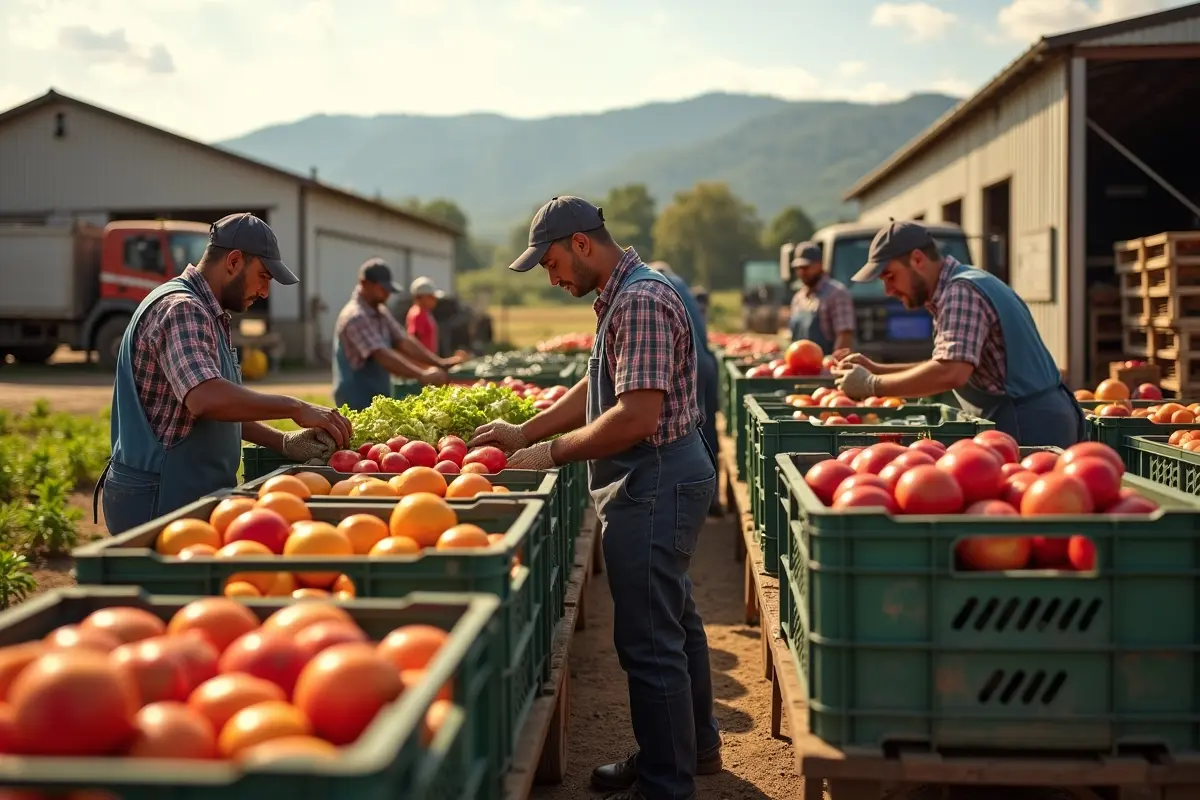
The Supply Chain Strategies That Keep Agricultural Businesses Growing
Running a successful farm operation means dealing with challenges that most other businesses never face. Crops don’t wait around when they’re ready. Weather doesn’t check your schedule before it changes. And buyers expect delivery windows that feel impossibly tight when you’re coordinating harvest, storage, and transportation all at once.
The farms that manage to grow year after year aren’t just better at planting and harvesting. They’ve figured out something that separates them from operations that stay stuck at the same size: logistics isn’t something you deal with after the growing season. It’s part of the business strategy from day one.
This is why modern agricultural leaders look to integrated supply chain models such as those highlighted at Superior Farms. Logistics and sustainability are treated as a single system rather than additional challenges. You could ensure your farm is better positioned to scale without sacrificing reliability or quality as a result.
Contents
Why Transportation Planning Starts Before Planting
Most agricultural businesses treat transportation as a problem to solve during harvest. But here’s where that approach falls apart: by the time crops are ready, all the good carriers are already booked. Peak season hits everyone at once, and suddenly farmers are scrambling to find anyone with a truck available.
The operations that scale successfully do the opposite. They’re locking in transportation relationships during the off-season, when they have leverage and options. That means when harvest arrives, they already know exactly how their product is getting to market, what it’ll cost, and who’s handling it.
This kind of planning requires thinking about logistics as a partnership rather than a transaction. Working with experienced providers like ag transport services means having access to specialized equipment and expertise that understands the unique demands of moving agricultural products—not just during the easy weeks, but when timing gets tight and everything needs to happen at once.
Building Capacity Without Buying More Equipment
One of the biggest mistakes growing farms make is assuming they need to own everything themselves. That truck sitting idle for eight months of the year still costs money. The storage facility that’s only full during peak season is burning cash during the slow periods.
Smart agricultural businesses have figured out that strategic partnerships let them access capacity without the capital investment. When you need ten trucks during harvest but only two the rest of the year, buying eight trucks that sit around doesn’t make financial sense. But having relationships with transportation providers who can scale up when you need them? That changes the economics completely.
This approach also reduces risk. Equipment breaks down. Drivers get sick. Weather creates delays that ripple through everything. When you’re relying entirely on your own resources, these problems can derail your entire operation. When you’ve built relationships with logistics partners who have backup equipment and contingency plans, those same problems become manageable hiccups instead of disasters.
The Cash Flow Advantage Nobody Talks About
Here’s something that doesn’t get enough attention: how fast your product moves directly affects how fast you get paid. Agricultural businesses operate on thin margins, and the difference between getting payment in three days versus three weeks can determine whether you make payroll comfortably or stress about it.
Efficient transportation systems compress that timeline. Product reaches buyers faster, which means invoices get processed faster, which means cash shows up in your account faster. This isn’t just about convenience—it’s about having working capital available when you need it for the next planting season, equipment repairs, or expansion opportunities.
The farms that understand this treat logistics speed as a financial tool, not just an operational detail. They’re willing to pay slightly more for reliable, fast transportation because they’ve done the math on what improved cash flow is worth to their business.
Managing Seasonal Volatility
Agricultural businesses face a challenge that most industries don’t: extreme seasonal demand that can’t be smoothed out. You can’t tell crops to ripen more slowly because the market’s not ready. You can’t delay harvest because your transportation isn’t lined up yet.
The operations that handle this successfully have built flexibility into their logistics strategy. That might mean having multiple transportation partners instead of putting all their eggs in one basket. It might mean paying for priority scheduling during peak weeks. It almost always means communicating plans far in advance so everyone involved knows what’s coming.
This kind of planning also extends to understanding where bottlenecks happen. Is it at the farm gate? During loading? At the delivery point? Farms that grow sustainably identify these chokepoints before they become problems and work with their logistics partners to eliminate them.
Creating Competitive Advantage Through Reliability
In agricultural markets, reputation matters enormously. Buyers remember which farms deliver on time, whose products arrive in good condition, and who they can count on when they need volume. That reputation isn’t built just by growing quality crops—it’s built by getting those crops to market consistently, season after season.
Transportation reliability becomes part of your brand. When a buyer knows they can count on your delivery schedule, they’re more likely to commit to larger orders. When they trust that your products will arrive in excellent condition, they’re willing to pay premium prices. And when they see you as a consistent supplier rather than a gamble, they build you into their own supply chains.
This is where logistics transitions from being a cost center to being a revenue driver. The farms that invest in reliable transportation systems aren’t just moving products—they’re building business relationships that create opportunities for growth.
The Long Game
Agricultural businesses that scale successfully don’t treat logistics as something to figure out year by year. They build systems, develop relationships, and create processes that work even when conditions aren’t perfect. They understand that every dollar invested in reliable transportation and strategic logistics planning pays back in reduced stress, better cash flow, and stronger buyer relationships.
The difference between a farm that stays the same size and one that grows isn’t usually about farming skills. It’s about treating the entire business—including how products move from field to customer—as an integrated system where every piece supports growth.


